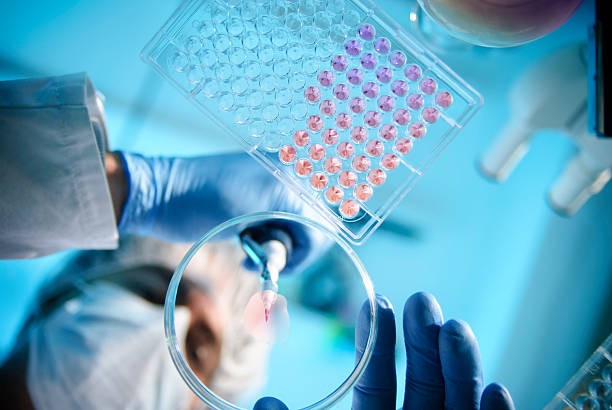Image Source: Google
Personalized medicine is a revolutionary approach to healthcare that tailors medical treatment to the individual characteristics of each patient. This approach takes into account factors such as genetics, environmental influences, and lifestyle choices to create targeted and effective treatment plans. Biological medical assessment plays a crucial role in personalized medicine by providing valuable insights into an individual's biology, enabling healthcare providers to deliver more precise and tailored care.
The Role of Biological Medical Assessment in Personalized Medicine
Biological medical assessment involves the evaluation of various biological markers and characteristics to gain a deeper understanding of an individual's health and well-being. These assessments provide vital information that can help healthcare providers make informed decisions about treatment strategies, medication options, and lifestyle recommendations. In the context of personalized medicine, biological medical assessment serves several important functions:
Identification of Genetic Variations
- Genetic testing can identify specific gene mutations or variations that may increase the risk of certain diseases or affect how an individual responds to certain medications.
- This information can help healthcare providers determine the most appropriate treatment options and dosages for each patient.
Assessment of Biomarkers
- Measurement of biomarkers such as blood glucose levels, cholesterol levels, and hormone levels can provide insight into an individual's overall health and risk factors for various conditions.
- Monitoring these biomarkers over time can help healthcare providers track the effectiveness of treatment plans and make necessary adjustments.
Advantages of Biological Medical Assessment in Personalized Medicine
The integration of biological medical assessment into personalized medicine offers several key advantages for patients and healthcare providers alike:
Precise Treatment Planning
- By analyzing an individual's biological profile, healthcare providers can develop personalized treatment plans that are tailored to the specific needs and characteristics of each patient.
- This targeted approach can lead to more effective treatment outcomes and reduced risk of adverse reactions.
Early Disease Detection
- Biological medical assessment can help detect early signs of disease or risk factors before symptoms manifest, allowing for early intervention and preventive measures.
- Early detection can significantly improve treatment outcomes and overall prognosis for patients.
Challenges and Considerations
While biological medical assessment holds great promise for personalized medicine, some several challenges and considerations must be addressed:
Privacy and Ethical Concerns
- The collection and storage of biological data raise important privacy and ethical issues, such as consent, data security, and potential misuse of genetic information.
- It is essential to establish clear guidelines and regulations to protect patient confidentiality and ensure ethical use of biological data in healthcare settings.
Cost and Accessibility
- Biological medical assessment techniques, such as genetic testing and biomarker analysis, can be costly and may not be readily accessible to all patients, particularly those from underserved or marginalized communities.
- Efforts are needed to make these technologies more affordable and accessible to ensure equitable and widespread adoption of personalized medicine approaches.
Future Directions in Biological Medical Assessment and Personalized Medicine
Despite the challenges, ongoing advancements in biological medical assessment continue to drive innovation in personalized medicine. Looking ahead, several key trends and developments are shaping the future of personalized healthcare:
Integration of Artificial Intelligence
- Artificial intelligence (AI) systems are being leveraged to analyze and interpret vast amounts of biological data, enabling more accurate predictions and personalized treatment recommendations.
- AI algorithms can help healthcare providers make sense of complex biological information and identify patterns that may not be apparent through traditional analysis methods.
Precision Nutrition and Lifestyle Interventions
- Personalized medicine is expanding beyond genetics to include personalized nutrition and lifestyle interventions that take into account an individual's unique biological needs and preferences.
- By integrating data from biological medical assessments with personalized nutrition plans and lifestyle recommendations, healthcare providers can create holistic and customized care plans for each patient.
Overall, the impact of biological medical assessment on personalized medicine is profound, offering new possibilities for tailored and effective healthcare solutions. By harnessing the power of biological data and integrating it into personalized treatment strategies, healthcare providers can improve patient outcomes, enhance quality of care, and advance the field of personalized medicine.
